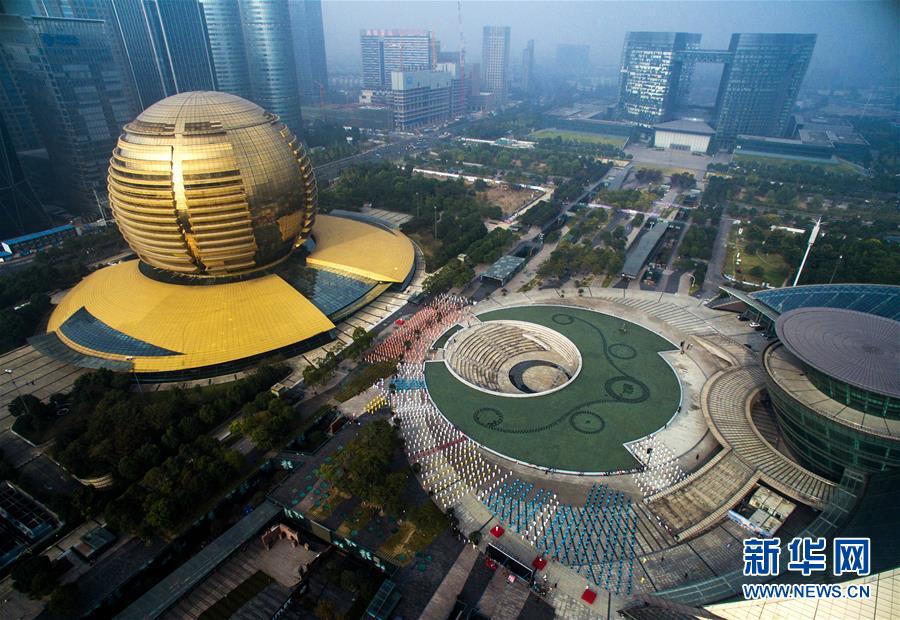G20’s mission and China’s role in fulfilling it
- By Liu Cun
 0 Comment(s)
0 Comment(s) Print
Print E-mail China.org.cn, April 7, 2016
E-mail China.org.cn, April 7, 2016
|
|
|
Photo taken on Oct. 22, 2015 shows a bird's-eye view of Hangzhou, east China's Zhejiang Province. [photo/Xinhua ] |
The G20 Hangzhou Summit in September will be an event of critical significance for the world and certainly for its host country, China. The importance of the summit cannot be overstated, because the whole world will be eagerly watching whether the leaders of the top economies can truly deliver the G20’s mission: closer cooperation and better global governance for the benefit of all countries.
The role of the summit will be discussed in a variety of ways, focusing on different aspects of it. But one shared understanding is that the summit must reinforce the sense of partnership and make it clearer that the G20’s core mission is to focus on growth and guide international economic cooperation.
Given the current economic climate, it is particularly vital that all G20 members recommit themselves to what brought them together in the first place. No country, no matter how powerful, can deal with all the challenges alone. The world has seen time and again the failure of so-called “global governance” controlled by one superpower; and the institution of several world powers trying to run the world has also proven inadequate.
The world belongs to all its people, which makes “global governance” a common responsibility. The contribution of each country may and should vary according to its size and strength, but “equal partnership” and “a world built, run and shared by all” should be the key principles that hold all of us together. The commitment to helping each other through difficult times is what underpins it all. This is the only thing that will keep the countries away from finger-pointing, double standards, beggar-thy-neighbor policies or any other selfish behavior. This is also the only way to ensure real peace and progress in the world and keep the G20 focused on growth.
Economic forecasts suggest that the year 2016 will continue to be marked by weak recovery and prevailing downward pressure on developing countries. This is coupled by entrenched structural problems in developed countries and lingering prospect of the return of economic crisis. This is the reality that the G20 is up against. Hence the essential need to come together and meet those challenges as real partners do.
A month ago, the G20 had its first coordinator meeting in Beijing, adopting “Toward an Innovative, Invigorated, Interconnected and Inclusive World Economy” as the theme of the summit, which spells out the four priorities for the G20 agenda throughout the year: first, seeking new growth models and opportunities from reform and innovation to uncover growth potential; second, strengthening global economic and financial governance and the representation and voice of developing countries to build up stronger resilience; third, making trade and investment a greater contributor to growth and build an open global economy; and fourth, facilitating inclusive and interconnected growth by following through the 2030 sustainable development agenda, reducing poverty and pursuing shared prosperity.
Proposed by China and agreed to by all G20 members, the theme and the priorities are based on the observation of the current state of the global economy. To quote President Xi Jinping’s words at last year’s G20 summit, “Under the current circumstances, we must answer two questions. The first is how to make an accurate assessment of the health of world economy. The second is what are the right prescriptions for boosting global growth and employment. ”







Go to Forum >>0 Comment(s)